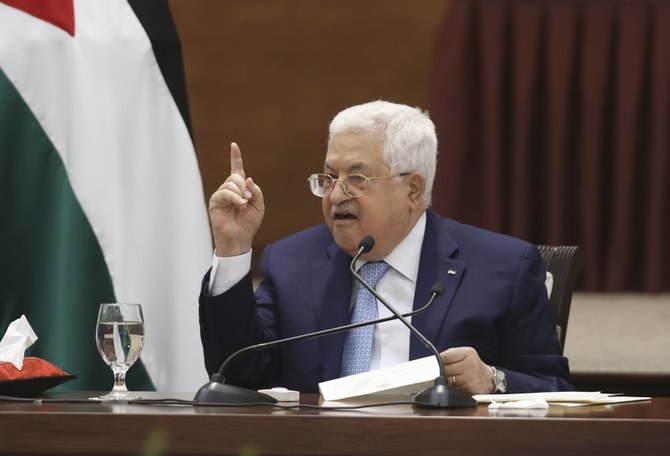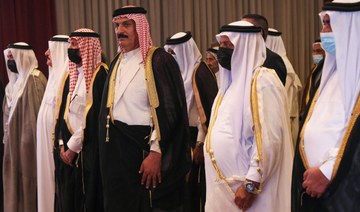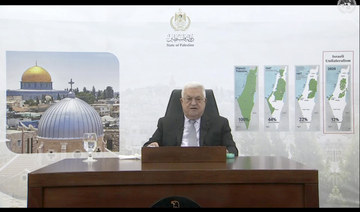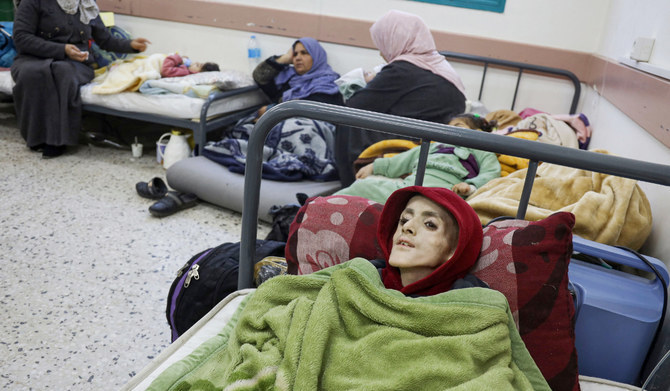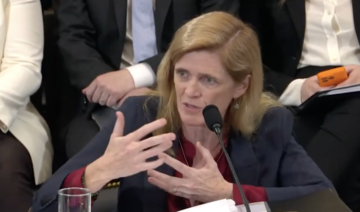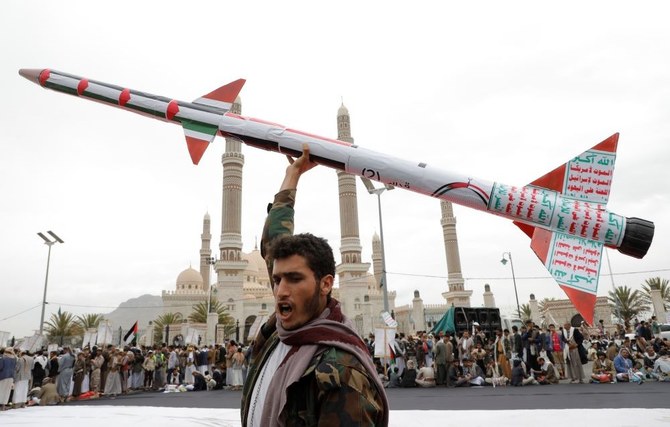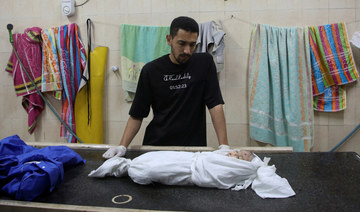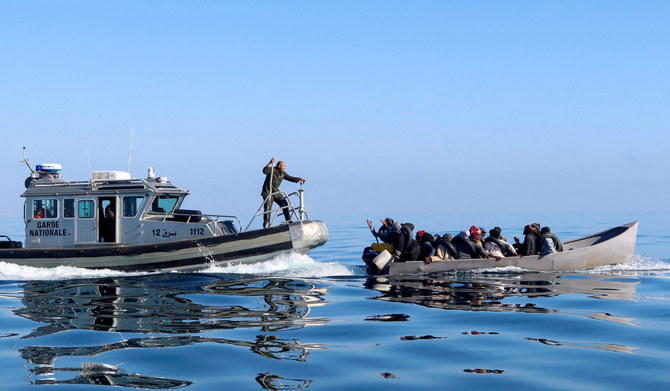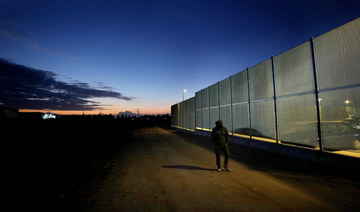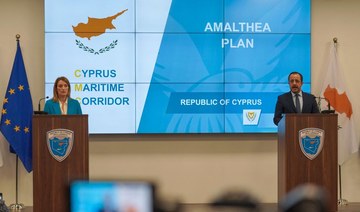WASHINGTON: Palestinian President Mahmoud Abbas gave the Israeli government one year to withdraw from the occupied Palestinian territories of the West Bank and Jerusalem or face the prospect of Palestinians withdrawing their recognition of Israel.
He added that Palestinians will otherwise seek a legal judgment from the International Court of Justice against its occupation of Palestinian territories.
Abbas said that Palestinians stand ready to finalize the borders between the prospective Palestinian state and Israel and finish negotiations over other lingering final status issues such as the return of refugees and the status of occupied Jerusalem.
Abbas, who delivered a prerecorded statement from Ramallah to the 76th session of the UN General Assembly in New York, said that Palestinians have had enough of Israel’s 54-year occupation of Palestinian lands.
He said that notwithstanding decades of peace negotiations with Israel, Palestinians still had no Israeli peace partner interested in ending the conflict.
Israel occupied the West Bank, the Gaza Strip and East Jerusalem — where Palestinians hope to establish their state — in the 1967 Arab-Israeli war after defeating the armies of Jordan, Egypt and Syria.
He said Palestinians have honored all their agreements with Israel and have committed to a peaceful end to the conflict, especially after the signing of Oslo Accords in 1993.
Abbas stated that Israel not only failed to honor its agreements with Palestinians but also worked to undermine the prospect of a two-state solution by building illegal settlements to increase the Israeli-Jewish population in the occupied territories in violation of international laws.
The Oslo Accords stipulated the withdrawal of Israeli occupation forces from the West Bank and Gaza within several years of the agreement.
It also committed Israel to negotiate the final status of occupied East Jerusalem, the establishment of a Palestinian state and the right of return of Palestinian refugees no later than one year after the final status negotiations that started in 1999.
Abbas said Israel has since rejected and refused to implement all of the peace proposals and agreements it signed with the Palestinians, including the Oslo Accords.
“Contrary to past agreements and to principles of international law, Israel is forcing the Palestinians out of their homes in Jerusalem, especially the Sheikh Jarrah neighborhood,” he said.
“Israel is committing ethnic cleansing of Palestinians, and this is considered a crime according to international law.”
The Palestinian leader chastised the UN and members of the international community for not holding Israel accountable for its actions, which has led the country to believe itself above the law.
He also criticized the US and several European countries, without naming them, for recognizing the Israeli occupation and its system of “apartheid.”
Abbas praised the administration of President Joe Biden, describing his ties with the US government as a “constructive dialogue.”
On the domestic front, Abbas said that he did not cancel the Palestinian legislative elections that were supposed to take place last May but rather “postponed them,” explaining that he initially decided against holding the slated elections because Palestinians in Jerusalem would not have been able to vote due to Israeli objections.
In an apparent criticism of his main Palestinian rival Hamas, Abbas reminded the international community that the Palestine Liberation Organization, which he is a chairman of, is the only representative of the Palestinian people.
Abbas, who is also the chairman of the Palestinian Authority, which administers Palestinian cities in the West Bank, has been the subject of severe criticism and protests by Palestinian citizens.
In recent months, Palestinian protesters demanded his resignation over claims of corruption, human rights violations and security collaboration with Israel.



